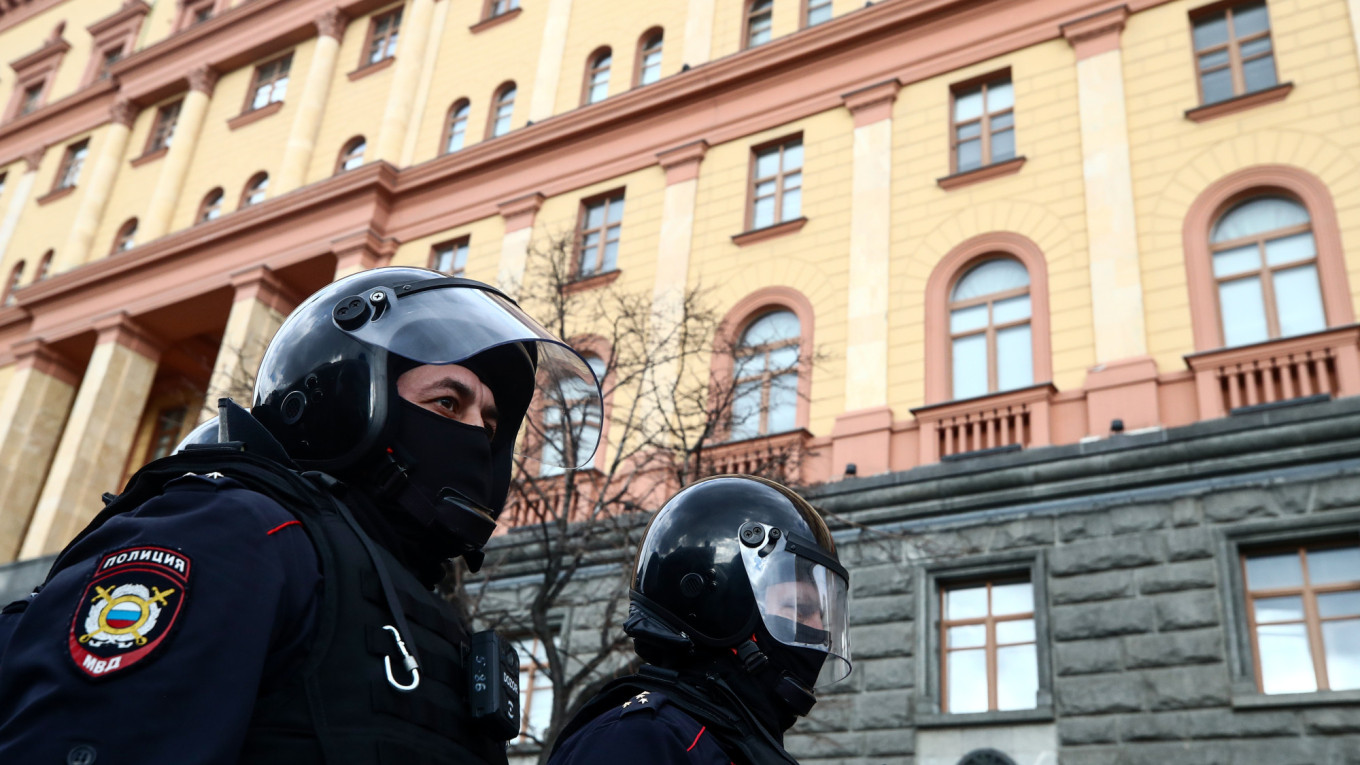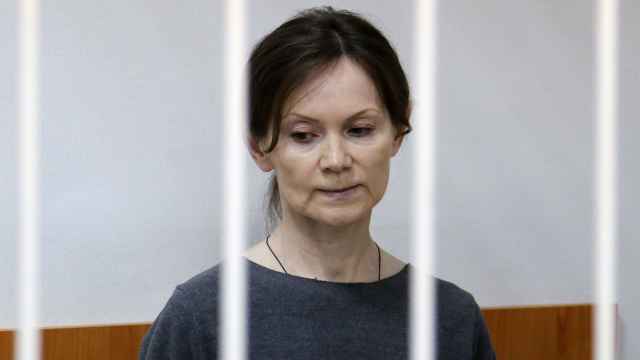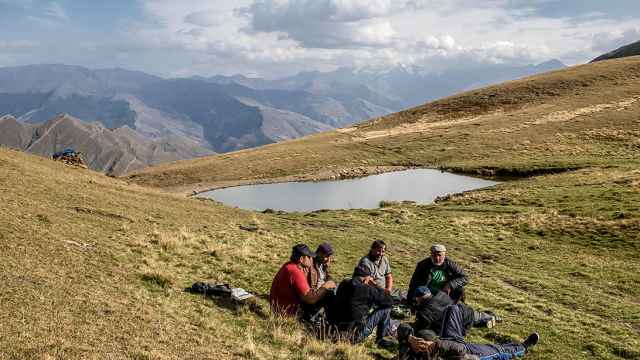A young Komi-Karelian activist announced this month that he was able to escape Russia despite being featured as a key witness in a high-profile investigation handled by the Federal Security Service (FSB).
Nikita Goldin, 18, was detained by Russian security services in the northern port city of Arkhangelsk in September and taken in for an interrogation that lasted 10 hours.
FSB operatives also raided Goldin’s apartment in search of “swastikas and explosives,” but instead found and confiscated his “birth certificate, a school diploma, a thumb drive with childhood photos and one hard drive,” according to the activist.
“I heard the investigator say: ‘He clearly isn’t cut out to be a Nazi, so we will put him down as [an ethnic] nationalist’,” Goldin told The Moscow Times in a phone interview.
Russia’s indigenous activists have faced increasing pressure from the Kremlin since the start of Moscow’s invasion of neighboring Ukraine.
While many chose to flee the country, those remaining have continued their work under the watchful eye of the FSB and the Interior Ministry’s Center for Combating Extremism, risking receiving lengthy jail terms on charges of inciting ethnic hatred, engaging in terrorist activities or treason.
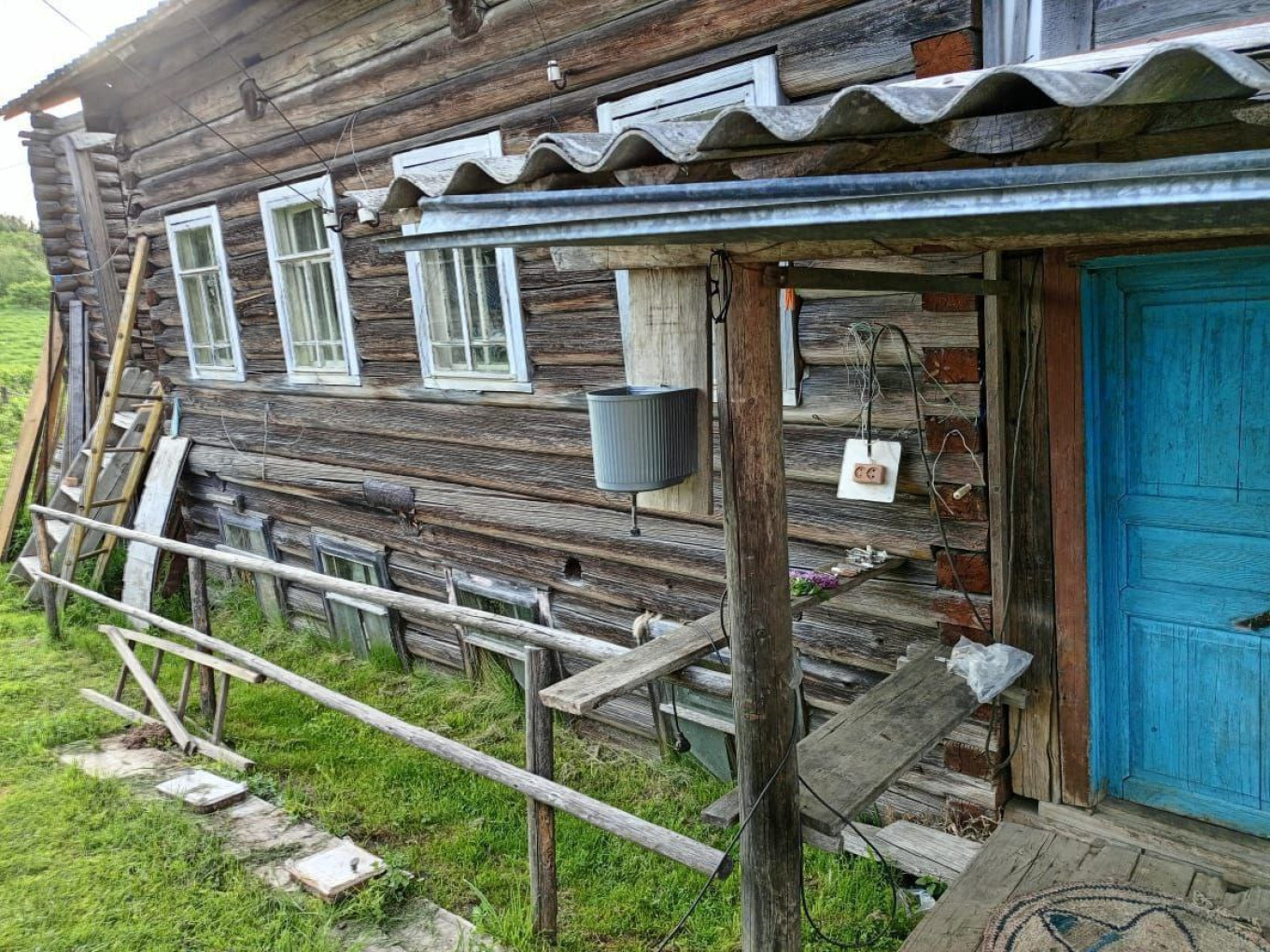
In October, Russia’s security services arrested dozens of indigenous activists in the republics of Bashkortostan, Mordovia and Tatarstan. Similarly to Goldin, all of them were suspected of harboring anti-government sentiments and maintaining links with outlawed pro-independence movements.
A native of the republic of Komi, a resource-rich region of northern Russia, Goldin spent most of his childhood in the small village of Chukayb.
With a population of just a few dozen, Chukayb is home to indigenous Permic-speaking Komi peoples who strive to preserve their language and traditional lifestyle amid wide-reaching Russification. The Russian language is still rarely spoken in Chukayb.
“My grandmother once told me that our family are not Russians at all, but Chud,” Goldin recalled, using the historic Slavic collective name for the Finnic peoples of northwestern Russia. “I couldn’t then comprehend what it means: I spoke the Komi language in the village, but kept telling everyone that I was Russian.”
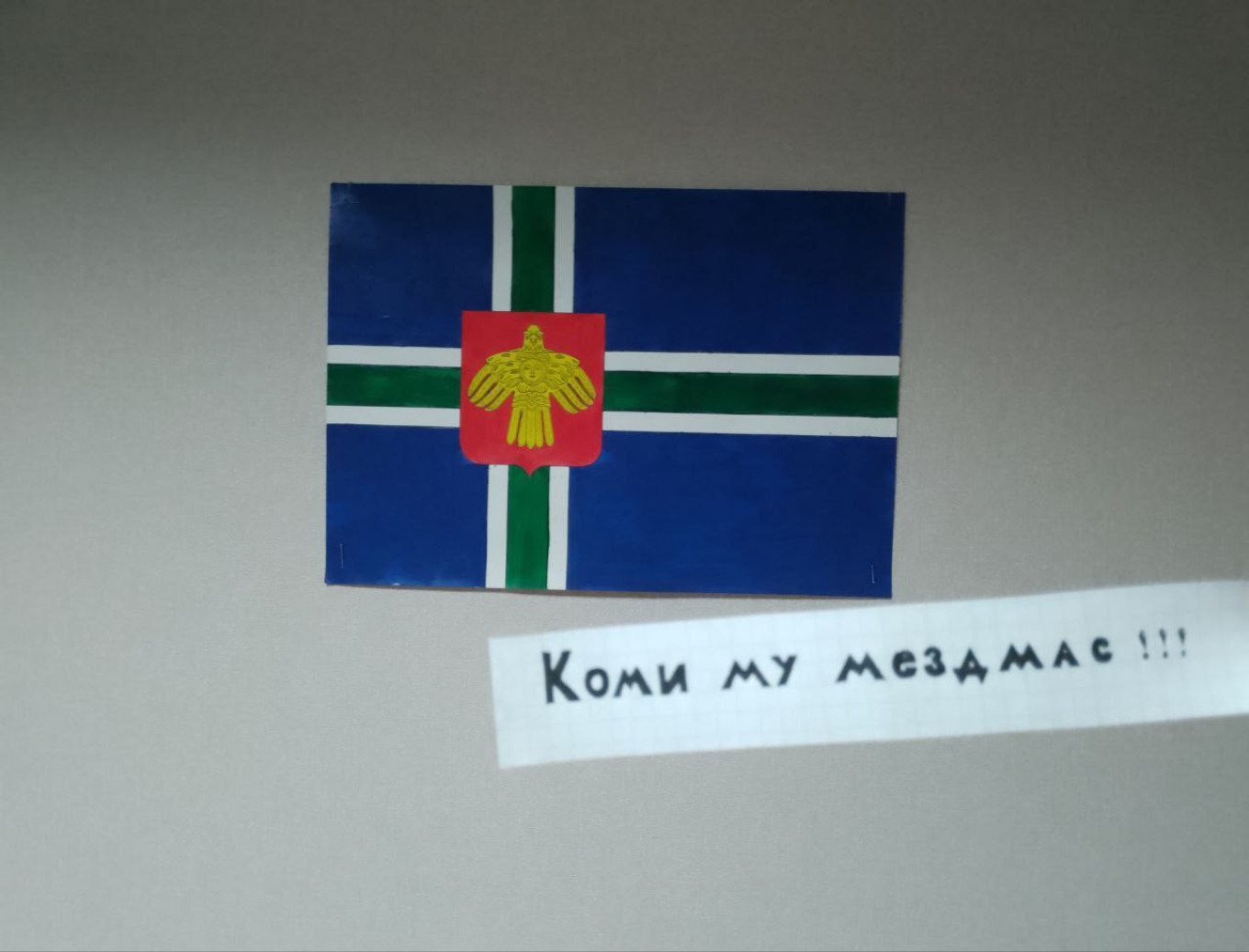
It wasn’t until after he turned 16 that Goldin developed a keen interest in his Komi and newly found Karelian roots.
Goldin’s interest in the history of his peoples and indigenous politics was further stimulated by the invasion of neighboring Ukraine, which has been described as a colonial war.
“When the war with Ukraine started, I strongly condemned it, but didn't take any immediate actions,” said Goldin. “The only thing I did was painting [anti-war] graffiti in Arkhangelsk [where I lived] — basically engaging in vandalism.”
Several months into the invasion, Goldin dove even deeper into the history and cultural traditions of his peoples and decided to share his findings in a personal Telegram blog named “Chud.”
At the same time, Goldin started to learn the Karelian language and became a regular contributor to the Telegram channel of the Karelian National Liberation Movement, a pro-independence organization founded by exiled Karelian activist Dmitry Kuznetsov in 2012.
“Their Telegram channel had a very anti-Russian stance and that really appealed to me,” Goldin recalled. “I often permitted myself to speak out against Putin’s regime on that channel because I thought they [the security services] wouldn’t be able to identify me.”
Months into his work with the Karelian National Liberation Movement, Goldin was approached by Kuznetsov’s Russia-based associate, student Andrei Vasurenko.
Vasurenko, also 18, invited Goldin to apply to join the ranks of the movement’s own Karelian National Battalion (KNB), a volunteer unit of the Ukrainian Armed Forces that is fighting against Russia in Ukraine.
“I wasn’t planning on going anywhere, to be honest, but decided to fill in the application as sort of a formality,” Goldin said. “This became a trump card in the hands of the FSB.”
Vasurenko was arrested in Karelia in March on charges of “inciting treason” among Russian citizens by asking them to join the Ukrainian Armed Forces. Goldin’s enlistment application likely became one of the key sources of evidence in this case — with Goldin himself as the key witness.
FSB officers took Goldin for questioning straight from a lecture at his college, the Higher School of Fishery and Marine Technologies in Arkhangelsk.
During the interrogation, Goldin said he was pressured to admit to cooperating with Vasurenko. The officers also accused the activist of harboring Rusophobic sentiments and forced him to record a video in which he could be seen screaming “Glory to Russia!”
“They made three takes of the video because I apparently wasn’t screaming loud enough,” Goldin recalled.

Goldin said that the officers repeatedly threatened him with an arrest and a lengthy term in a Siberian penal colony in an attempt to get him to confess.
“Whenever I would forget something or mumble, he [the interrogator] would reach out for the phone and say that he is about to call the guards,” the activist told The Moscow Times.
After being questioned and having his house searched by the FSB, Goldin decided to vacate his apartment and live at a friend's place while planning his escape from Russia.
The activist said he saw his encounter with the FSB as a precursor to his own imminent arrest. His lawyer likewise said that the authorities treated Goldin as an offender rather than a witness.
Goldin declined to reveal details of his escape from Russia due to security concerns but confirmed to The Moscow Times that he is currently awaiting a humanitarian visa issued by an EU member state.
Once safe in Europe, Goldin plans to continue his activism and expand into political work — all in the hope of building a different, better future for the Karelian and Komi peoples in Russia.
“The paper-made autonomy that exists today is not enough,” Golding said when asked about his vision for the future.
“If there will be a new Russia, then we will have to negotiate for greater autonomy like in a real federation. Like in the U.S.”
A Message from The Moscow Times:
Dear readers,
We are facing unprecedented challenges. Russia's Prosecutor General's Office has designated The Moscow Times as an "undesirable" organization, criminalizing our work and putting our staff at risk of prosecution. This follows our earlier unjust labeling as a "foreign agent."
These actions are direct attempts to silence independent journalism in Russia. The authorities claim our work "discredits the decisions of the Russian leadership." We see things differently: we strive to provide accurate, unbiased reporting on Russia.
We, the journalists of The Moscow Times, refuse to be silenced. But to continue our work, we need your help.
Your support, no matter how small, makes a world of difference. If you can, please support us monthly starting from just $2. It's quick to set up, and every contribution makes a significant impact.
By supporting The Moscow Times, you're defending open, independent journalism in the face of repression. Thank you for standing with us.
Remind me later.



